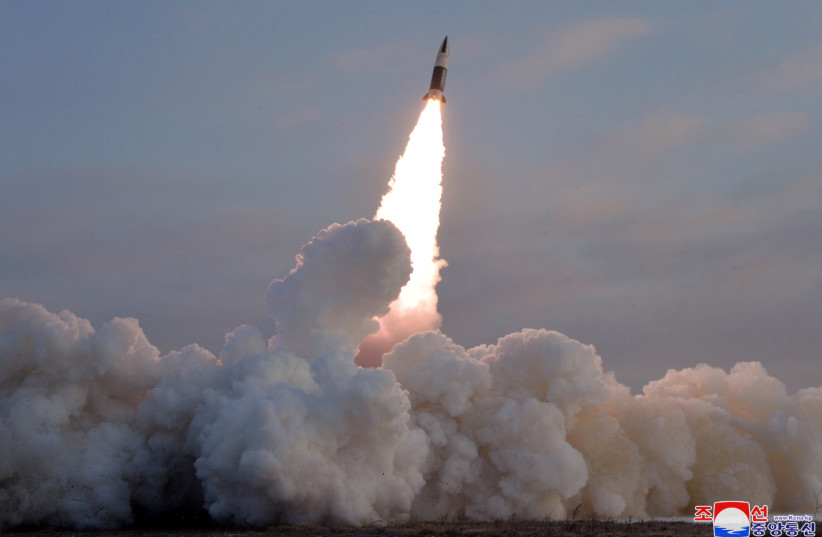North Korea fired two short-range ballistic missiles into the sea off its east coast on Wednesday, just an hour before leader Kim Jong Un met President Vladimir Putin in Russia.
It appeared to be the first launch to occur while Kim was abroad for a rare trip with most of his top military leaders, demonstrating an increasing level of delegation and more refined control systems for the country's nuclear and missile programs, analysts said.
The missiles were launched from near the North Korean capital of Pyongyang, and flew about 650 km (404 miles), said South Korea's Joint Chiefs of Staff, which condemned the launch as a violation of UN Security Council resolutions.
Japan's Chief Cabinet Secretary Hirokazu Matsuno told reporters that Japan had lodged a protest against North Korea through diplomatic channels in Beijing.
Both missiles fell in the sea outside Japan's exclusive economic zone (EEZ), he added.

The nuclear-armed North has conducted regular launches of everything from short-range and cruise missiles to massive intercontinental ballistic missiles (ICBMs) that can strike the continental United States.
All of North Korea's ballistic missile and nuclear weapons activities are banned by United Nations Security Council resolutions that were last passed with the support of Pyongyang's partners in China and Russia in 2017.
Since then, Beijing and Moscow have called for sanctions to be eased on the North to jumpstart diplomatic talks and improve the humanitarian situation.
Kim didn’t leave his country for six years after taking power in 2011 when his father died.
In 2018 and 2019 he visited China, South Korea, Singapore, Vietnam and Russia in nine separate trips, but his current visit in Russia is the first since then.
Command and control
How Kim maintains command and control over his country's missile and nuclear forces while abroad is unclear, but analysts say recent drills have revealed a system for overseeing nuclear weapons similar to those used in the United States and Russia.
A report in March by the Stimson Center's 38 North program, which tracks North Korea, said state media announcements outlined a process that includes commanders of units and various sub-units, a launch approval system, and “technical and mechanical devices” governing nuclear weapons control.
In recent years North Korea appears to have moved away from an "automated" system under which Kim might dial a telephone number and say a password to authorize a launch, to "devolution," in which authority can be handed over to a trusted proxy, said Michael Madden, a leadership expert with the Stimson Center.
"That way if Kim is killed in an attack or rendered incommunicado, a surrogate would have the authority to launch a nuclear counterstrike on his behalf," he said.
While Kim is abroad, authority would most likely be delegated to an individual elite, such as senior ruling party member Jo Yong Won or top parliamentary lawmaker Choe Ryong Hae, who comes from one of the "revolutionary families" that fought alongside North Korea's founder, Kim Il Sung, Madden said.
Kim might also delegate authority to his sister, Kim Yo Jong, he added.
"With that in mind, while today's missile launch may not have tested nuclear command and control, holding the first missile event while Kim Jong Un was away indicates that North Korea has decided or deliberating on using the devolution method," Madden said.
